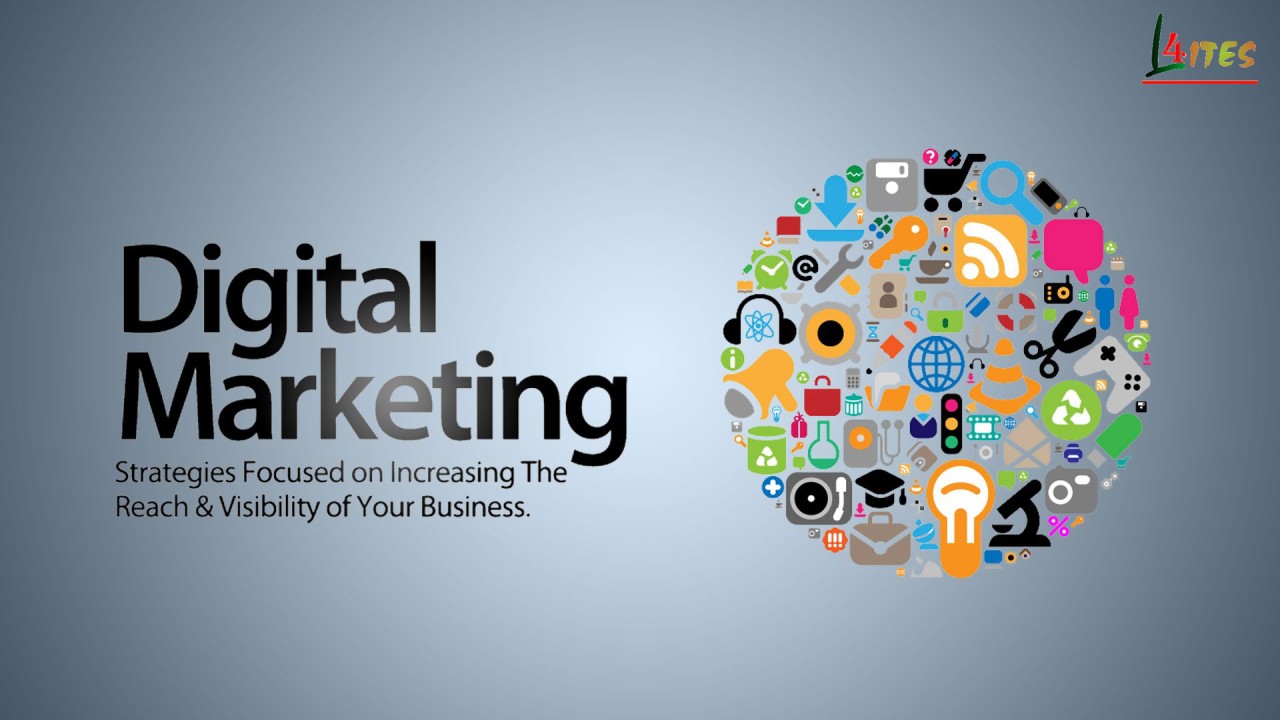1. Introduction to Digital Marketing
Digital marketing encompasses a broad range of strategies and tools used to promote products and services through digital channels. By leveraging the internet and electronic devices, digital marketing enables businesses to connect with current and potential customers in innovative ways. Unlike traditional marketing methods, which rely on print media and in-person interactions, digital marketing utilizes online platforms for engagement. The scope of digital marketing has expanded significantly due to advancements in technology and shifting consumer behaviors.

2. Evolution of Digital Marketing
The evolution of digital marketing has been remarkable, transitioning from basic online ads to a sophisticated and multifaceted field. Initially, digital marketing consisted of simple banner ads and email campaigns. As technology advanced, new strategies emerged, including SEO (Search Engine Optimization), PPC (Pay-Per-Click) advertising, and social media marketing. The rise of mobile technology, big data, and AI (Artificial Intelligence) has further broadened the scope of digital marketing, offering more advanced tools for targeting and engagement.
3. The Role of Search Engine Optimization (SEO)
SEO is a cornerstone of digital marketing, focusing on improving a website’s visibility in search engine results pages (SERPs). Effective SEO involves optimizing various aspects of a website, including its content, structure, and technical elements. Key strategies include keyword research, on-page optimization, and backlink building. By enhancing a website’s SEO, businesses can attract organic traffic and improve their online presence, making it an essential component of any comprehensive digital marketing strategy.
4. Pay-Per-Click (PPC) Advertising
PPC advertising is a key digital marketing strategy where businesses place ads on search engines and other platforms, paying each time a user clicks on the ad. Platforms like Google Ads and Bing Ads enable precise targeting based on keywords, demographics, and location. PPC advertising provides measurable results, allowing businesses to track performance, adjust budgets, and refine targeting strategies. It is particularly effective for generating immediate traffic and leads, complementing other digital marketing efforts.
5. Social Media Marketing
Social media marketing leverages platforms such as Facebook, Instagram, Twitter, LinkedIn, and TikTok to promote products and engage with audiences. Each social media platform offers unique features and audience demographics, allowing businesses to tailor their marketing strategies accordingly. Social media marketing also includes influencer collaborations, where brands partner with popular social media personalities to reach broader audiences. This aspect of digital marketing is crucial for brand visibility and audience engagement.
6. Content Marketing
Content marketing involves creating and sharing valuable content to attract and engage a target audience. This content can take various forms, including blog posts, videos, infographics, and eBooks. The goal is to provide useful information that addresses the needs and interests of potential customers. By establishing authority and building trust, content marketing helps drive organic traffic, support SEO efforts, and foster brand loyalty. It is a fundamental element of a successful digital marketing strategy.
7. Email Marketing
Email marketing remains a powerful tool in the digital marketing arsenal. It involves sending targeted messages to a list of subscribers with the aim of promoting products, services, or special offers. Email campaigns can be highly personalized, allowing businesses to segment their audience and tailor messages based on behavior and preferences. Effective email marketing includes newsletters, promotional offers, and automated drip campaigns, making it a valuable component of any digital marketing strategy.
8. Mobile Marketing
With the rise of smartphones and tablets, mobile marketing has become a critical aspect of digital marketing. This includes tactics such as SMS marketing, mobile app advertising, and optimizing websites for mobile devices. Mobile marketing ensures that businesses reach customers on their preferred devices, providing a seamless user experience. Additionally, location-based marketing enables businesses to target users with relevant offers based on their geographical location, enhancing the effectiveness of digital marketing campaigns.
9. Data Analytics and Measurement
Data analytics is essential for optimizing digital marketing strategies. Tools like Google Analytics and social media insights provide valuable information about campaign performance and customer behavior. By analyzing key metrics such as website traffic, conversion rates, and engagement levels, businesses can make data-driven decisions, refine strategies, and measure the ROI (Return on Investment) of their digital marketing efforts. Data analytics helps ensure that marketing activities are effective and aligned with business goals.
10. Future Trends and Innovations
The future of digital marketing is shaped by emerging trends and technological innovations. AI and machine learning are increasingly used for predictive analytics and personalized marketing. The growth of voice search and conversational AI is changing how users interact with digital content. Additionally, augmented reality (AR) and virtual reality (VR) are creating new opportunities for immersive brand experiences. Staying abreast of these trends and adopting new technologies will be crucial for businesses aiming to stay competitive and effectively engage with their audiences.
Conclusion
The scope of digital marketing is expansive and continuously evolving. From SEO and PPC to social media and content marketing, each element plays a vital role in creating a successful digital marketing strategy. By embracing new technologies and staying updated on industry trends, businesses can leverage digital marketing to drive growth, enhance their online presence, and achieve long-term success. As the digital landscape continues to develop, the potential for digital marketing to influence business outcomes remains vast and promising.